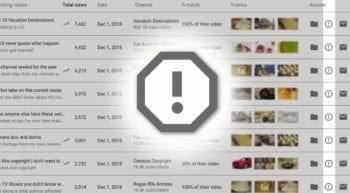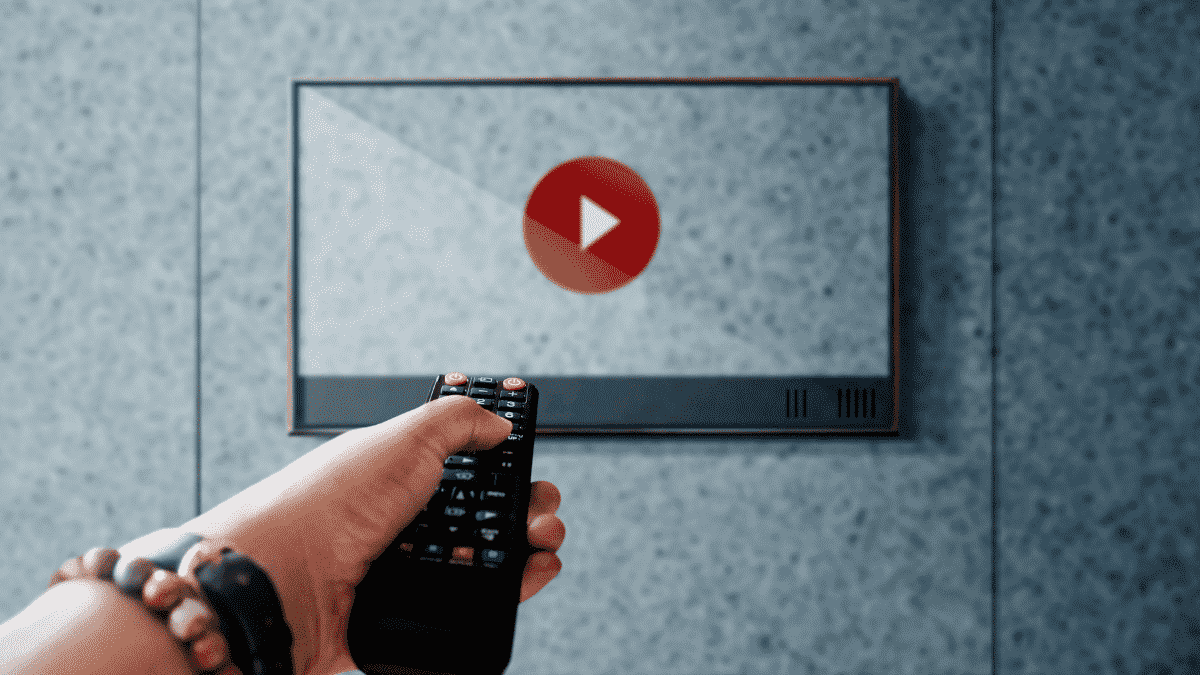YouTube Threatens Infringement Victim with Termination
Beau Ouimette, better known by his YouTube handle Aquachigger, has a 13+ year history of posting videos of him finding valuable, strange and/or unusual things underwater as well as doing metal detection and other kinds of adventuring. He’s amassed a sizable audience, 1.3 million subscribers, and has a successful and ongoing Patreon campaign.
However, right now he is worried that his YouTube career may be coming to an end.
In his most recent video, entitled “Aquachiggers YouTube Termination Notice: Someone Stole My Videos and YouTube Is Terminating Me!” Ouimette outlines a recent exchange with YouTube where after filing a copyright complaint on a “reaction” video featuring his content, YouTube is now threatening to take action against his channel unless he either retracts his claim or proves that he owns the video he uploaded.
In the video, he outlines the story involving his channel and a much larger Saudi Arabian YouTuber that hosts a “reaction” video channel. YouTube, through its internal copyright system, notified Ouimette that one of his videos had been copied and uploaded on this other channel, which has over 6.3 million subscribers. He filed a copyright notice through the system, something he has done many times before without problem, but this time was different.
YouTube sent him a letter back saying that they were “concerned that some of the information in your takedown request may be fraudulent” and that he had seven days to provide a detailed explanation with additional information or retract his claim. Either way, his YouTube account may be terminated for filing a false takedown notice.
Ouimette, worried that his account may be terminated by the end of the week, said that he may simply stop making videos if that happens and that, if he does continue, it will only be on his Patreon and Facebook accounts.
As of this writing, the infringing video he was referring to has been removed due to a copyright claim by him, signaling that YouTube likely realized what was going on decided to take the video down.

However, that doesn’t mean the story can be dismissed out of hand. There really shouldn’t have been a story here at all and the fact that YouTube let it get to this point points to the flaws in not just their copyright system, but their abuse systems in general.
YouTube’s Long, Troubled History
To be clear, Ouimette’s account was not/is not in the extreme danger he feared. Yes, the letter has threatening language in it, but it’s also boilerplate. As long has he provided proof that he owns the content, it’s most likely that YouTube would take his side (as they seemingly have) and the matter would be resolved in his favor.
That said, his level of fear is perfectly understandable. Not only are we talking about a YouTube channel that he has spent thirteen years growing, but YouTube is so notorious for being bad at handling copyright claims that termination certainly seems like a reasonable outcome.
To make matters worse, how does one provide more proof that they own a video that features them in front of the camera, was uploaded to their YouTube channel before the infringement, which was identified by YouTube’s own copyright system? It’s unlikely that Ouimette has copyright registrations for each of his videos so what further details can he provide?
It’s easy to see why he was frustrated and worried. He had every right to be.
To that end, we’ve talked a great deal about copyright issues on YouTube. We’ve discussed how it’s a confusing two-tiered system that is constantly shifting and changing how it approaches the issue.
Ouimette is far from the first to have his content taken by a much larger account. In 2018, there were multiple stories of exactly that happening, usually with accounts in different languages to the original video, as with Ouimette. The reaction video controversy has also been happening since at least 2016, with many YouTubers decrying such videos as theft while others claim it is a separate and legitimate art form.
Literally none of the issues raised in Ouimette’s case were new. These are all challenges that YouTube has faced for years and still struggles to deal with. Sadly, they are problems that YouTube can’t likely solve, at least not on a mass level.
However, for some YouTubers, that isn’t an issue. As it has become clear, once you’ve hit a certain size, you get a very different YouTube experience than most.
The Haves and Have Nots of YouTube

Ouimette is no YouTube slouch. with 1.3 million subscribers, his channel is far larger than most, including the majority of channels he previously filed copyright claims against. According to his screenshot, most of the other channels had only a few dozen or a few hundred subscribers.
But in a land of haves and have nots, there is always someone bigger and that’s what Ouimette ran into with this claim, a Saudi Arabian react channel about 5x his size.
YouTube has a long history of showing favoritism to its bigger stars and channels. In August 2019, this came to a head as the Washington Post aired the concerns of many YouTube moderators that claimed popular channels were allowed to flout the rules regularly and continue to not only operate but earn revenue from their videos.
Where a new YouTuber can struggle to even get a human to look at a dispute, larger YouTubers are eligible to be connected with a Partner Manager that provides one-on-one support for a variety of issues.
To be clear, YouTube can’t provide this level of service to everyone. There are too many channels, most of which make little to no money. However, this means that most of us struggle under a deeply flawed and largely-automated system for rules enforcement, including copyright, while others at least have access to human beings that can help them resolve complex issues.
Even if large YouTube channels are technically held to the same rules, they don’t live in the same world and can often get away with things that smaller channels can’t, simply because of that personal element.
Different systems will always produce different outcomes. That’s a simple reality that YouTubers are still coming to grips with.
Sadly, for most of us, there’s nothing we can do. Until a real competitor enters this space, YouTube and YouTube alone sets the rules we must follow and creates the systems under which those rules are enforced. For most of us, that means dealing with a deeply-flawed, mostly-automated enforcement system that will continue to wreak havoc on channels big and small.
Bottom Line
In the end, pointing out the problem is easy, it’s finding a solution that is hard. YouTube, much like Amazon and Facebook are platforms that are “too big to police” and require automated solutions to provide any level of enforcement.
One simply can’t “hire more people” and get rid of Content ID. There’s simply too much content being uploaded every minute of every day. Automated tools are necessary. To make matters worse, even the relatively small number of appeals likely can’t be handled by humans either, the number is still too great.
But there are a few things that they could do. One would be to ensure that partner managers can not intervene in any way on community standards and copyright disputes.
Second, they could provide greater transparency across the entire enforcement process (including clearly indicating which decisions are automated versus human) and offer an independent and external tribunal to hear extreme disputes.
Though obviously not every dispute could reach such a tribunal, a transparent “Supreme Court” for YouTube that is both independent of YouTube and of the creators, could help bring some consistency by establishing clearer rules and it could hold YouTube accountable to its own standards.
What we most want to avoid is situations like Ouimette’s where a YouTube reports an infringing video and ends up fearing punishment for it. This was a clear breakdown of YouTube’s most basic systems, but better infrastructure behind those systems could prevent it from reaching the point that it did.
This never should have happened but, if it had to happen, it should have been clear what the next steps were for Ouimette. There is no reason that he should have been in as much reasonable fear for his channel and we can only hope that this is a lesson YouTube learns from.
Want to Reuse or Republish this Content?
If you want to feature this article in your site, classroom or elsewhere, just let us know! We usually grant permission within 24 hours.
